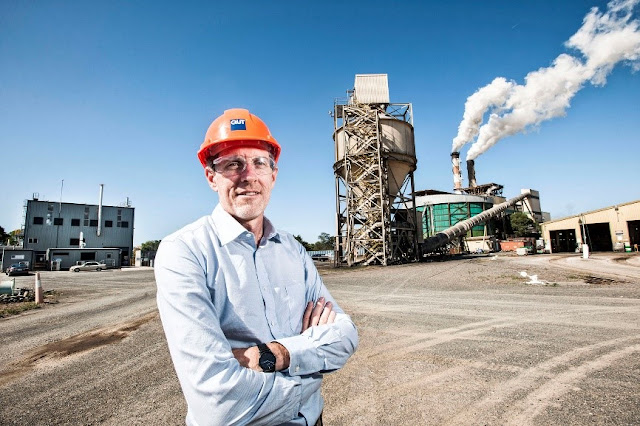QUT receives funding to commercialise biorefinery products
Type of post: NEWS.
Queensland University
of Technology (QUT) research on biorefining has received a major boost in
the form of funding for the Phase 2 of the Biorefineries for Profit project.
Press release: “Funding boost to commercialise biorefinery
products”, 9/9/2019.
Figure 1. Professor Ian O'Hara (QUT’s Centre
for Tropical Crops and Biocommodities) at the Mackay Renewable Biocommodities
Plant (taken from the press release)
QUT leads the research and development
activities of this project which is supported by the Australian Government
Department of Agriculture as part of its Rural R&D for Profit program. Phase
2 will investigate the critical issue of turning sugarcane and cotton by-products
into higher-value products (highly digestible animal feeds, feed supplements
and industrial chemicals).
Three of the most promising technologies from
Phase 1 have been selected to progress towards commercialization:
- Two of them are related to producing animal
feed products. Their applications will be demonstrated through animal feeding
trials.
- The other one is the demonstration at a pilot
scale of the conversion of cotton gin trash into a specialty chemical. This compound
can be used to produce biobased fuels and plastics.
QUT is undertaking a significant part of its research
at the Mackay Renewable Biocommodities Pilot Plant (MRBPP). Major outcomes
already achieved at the pilot plant include the development of improved animal
feed supplements (currently in commercial trials) and the support for the
Mercurius Biorefining pilot facility in Gladstone where sugarcane waste is
being turned into jet and diesel fuels and chemicals.
Related post: “Mercurius
Biorefining plans to establish pilot and demo plants in Queensland”, 23/2/2018.





